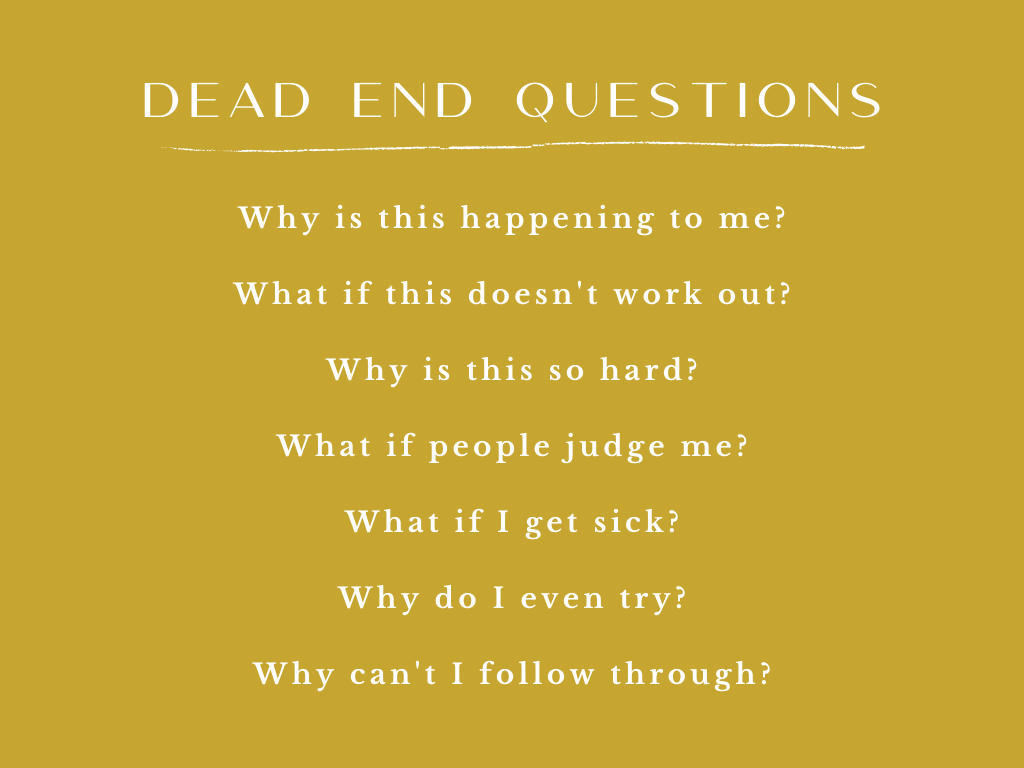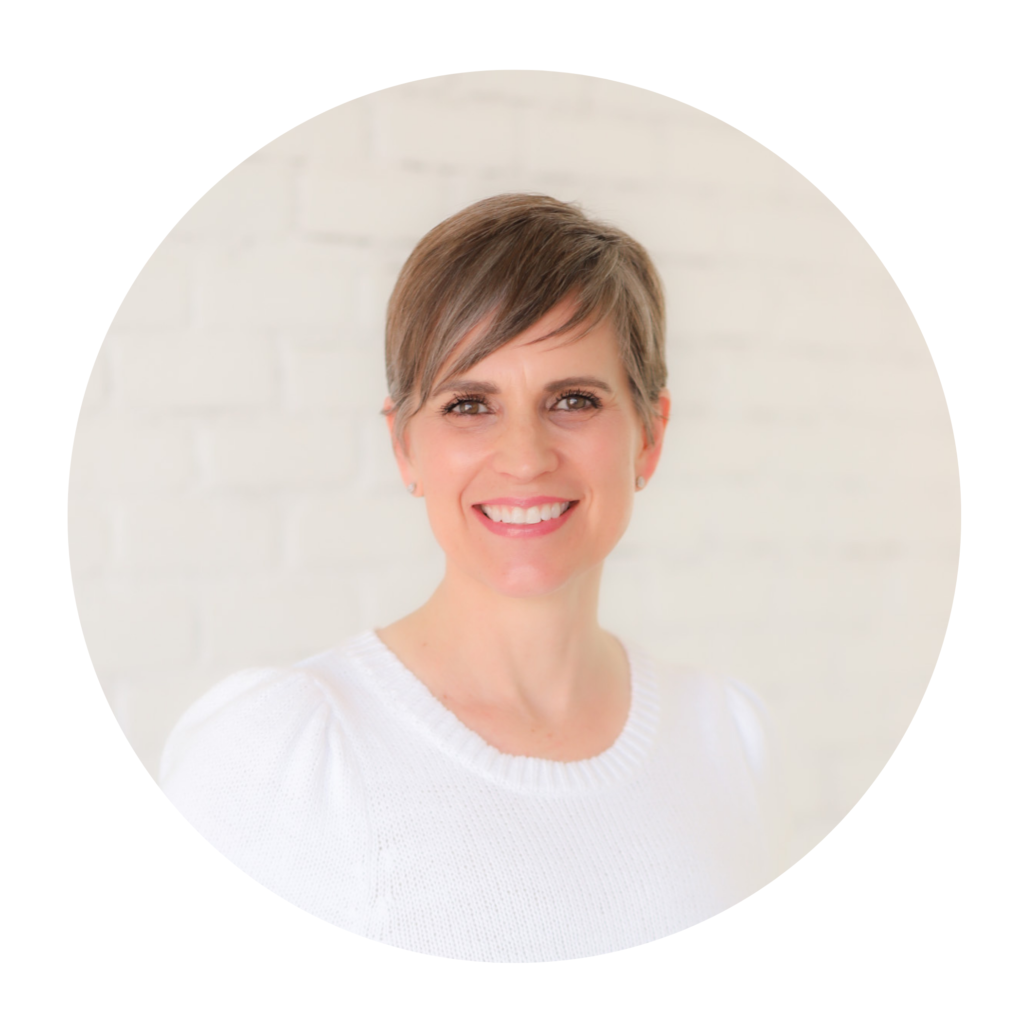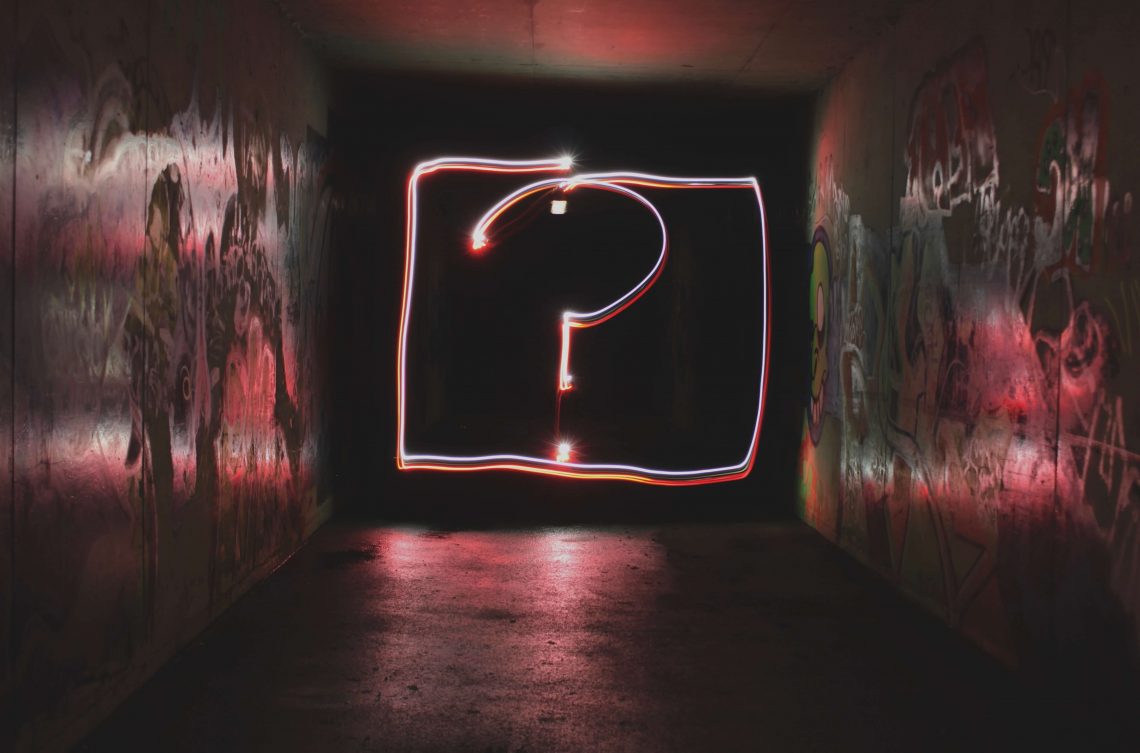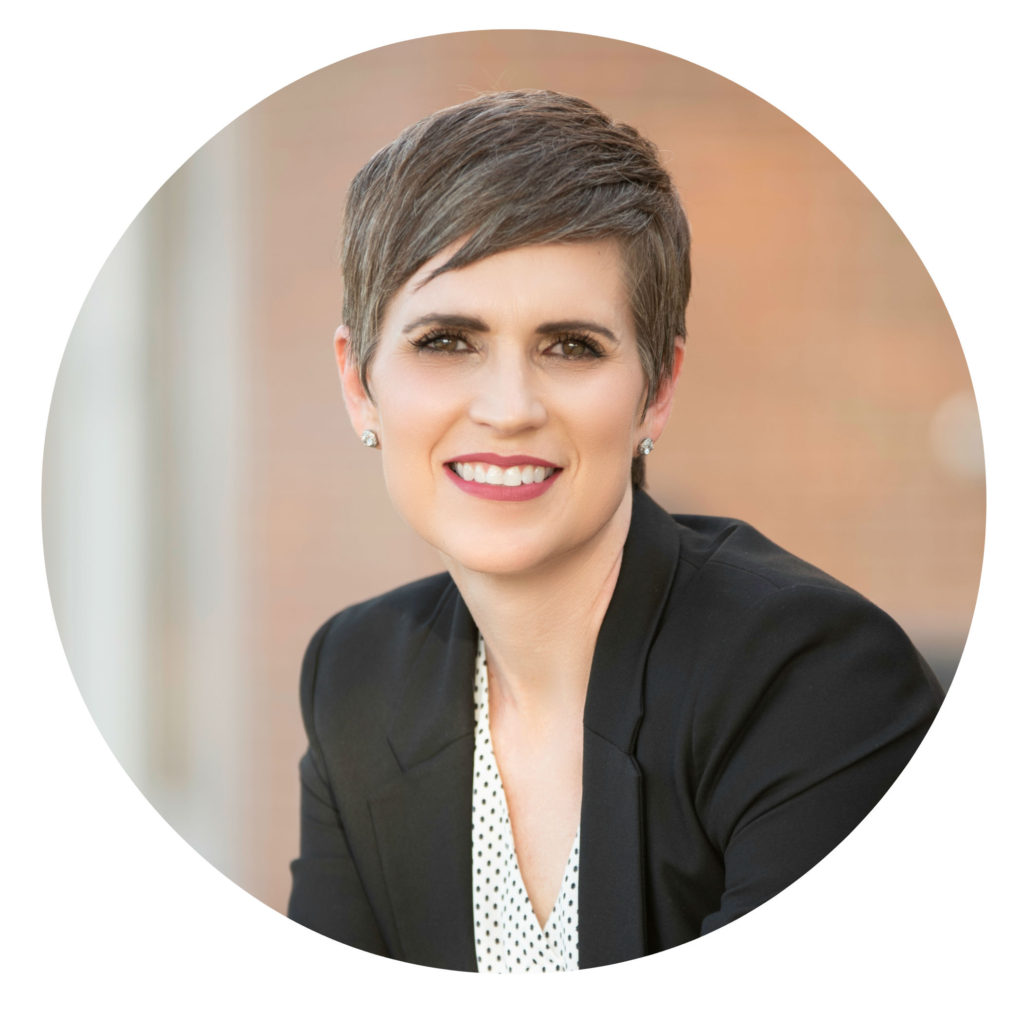Every question begins with an innocent little word, Why? Who? What? When? Where? The phrase that follows these little words can change the direction of your life in big ways.
Questions make us uncomfortable.
When we ask questions, we have to find an answer. It is what our brains do. For this very reason, many of us avoid asking ourselves questions. Are you familiar with the phrase “ignorance is bliss”? We don’t want to know because knowing means that we might have to do something about it.
Most people go through life on auto-pilot playing out the programming of their childhoods without question. Questioning what we believe to be true, especially when those beliefs are shared by the people we love and the people we are in community with, is uncomfortable.
Our brains want comfort, just like our bodies desire comfort. But the comfort that our minds seek comes in the form of certainty. The minute you ask a question, your brain experiences the discomfort of not knowing. To deal with the uncertainty, it searches to find an answer to get the certainty back. Which is why questions matter, and the right questions can make all the difference.
When you ask the right questions, it can be downright scary. You might discover that you don’t actually like your job, that you don’t really want to live in that huge house that you just bought, or that you don’t want a puppy you want to have a baby. That is to say, the right questions can open what we didn’t even know was there.
Not all questions are created equally.
When we ask a negative question, we will get a negative answer. For instance, when we ask, “Why am I not good enough?” our brains will come back with all the reasons why. On the other hand, when we ask a positive question like, “How am I fabulous?” the brain will answer with all the ways that you are fabulous. Go ahead and try it.
Whenever you ask yourself a question, the answer will come in the form of thoughts.
Take a moment right now and see if you can identify the questions you ask yourself regularly.
Are your questions dead end, or are they powerful?
Dead end questions are negatives, shallow, close-minded, judgmental, passive, and probably a host of other things. Powerful questions are open, neutral, non-judgmental, curious, engaging, active, and possibly a host of other things.
Dead end questions lead to dead end answers. Powerful questions lead to powerful answers.


Your brain is designed to answers the questions you are asking of it.
If you ask a negative question, your mind will answer with a lot of negative thoughts. “Why am I not good enough? Why am I so stupid? Why can’t I lose weight?” These questions are dead ends in the sense that they don’t serve you. They keep you stuck, confused, or make you feel bad. Negative.
Likewise, If you ask powerful questions, your mind will give you answers that are empowering. “What do I love right now? What makes me so happy? Why am I perfect just the way I am?” These are questions that will focus your mind on what is positive.
Questions are like directions for our brain. Questions tell it what to do and what problem to solve. It doesn’t care whether the questions are negative or positive. It answers questions. If it’s been told negative things for years, that’s what it knows how to do well. If it’s been told positive things for years, that’s what it knows how to do well.
The best part is that you can decide to change. If you want to think different thoughts, start asking better questions.
Get unstuck by changing the question.
A good question will provide you with an answer that will grow you, excite you, or move you forward. You’ll know by how it feels.
Does your question:
- Feel good?
- Presume a positive belief?
- Empower you to take responsibility?
- Inspire you to take action?
- Open your mind?
- Generate insight?
- Help you discern what’s going on?
- Invite appreciation and compassion?
When you compare your question to the above list, if you don’t have a yes answer for at least one, it’s time to find a better question.
In other words, better questions mean better answers.
Refuse to accept “I don’t know” as an answer.
“I don’t know,” seems like such an innocuous little thought, but in reality, it is a dead end. When you tell yourself, “I don’t know,” “I’m confused,” or “I can’t make a decision,” you’re blocking yourself from your wisdom. Open up your mind. Even if you don’t know the exact answer right now, saying “I don’t know” will block that answer from coming.
When you hear yourself answering, “I don’t know,” it is your mind saying, “this is too hard. I don’t want to think about it.” A hard question is not an excuse to give up. Keep asking it and sit with it until the moments of insight start to come.
Your brain likes to be efficient, and when you keep asking the question, it will want to return “I don’t know” and have that be the end of it. Yes, our brains are sophisticated, but our minds also like the status quo – thinking what it always has. It’s just plain easier.
Meanwhile, here is a little trick to bypass the “I don’t know” roadblock: gently ask yourself to make a guess. When the mind hears the word “guess,” it permits you to answer because a guess, by nature, could be wrong. Just take a guess and see what possibilities come to you. Like a guess, maybe one of them will be the answer you need.
Tip: Have a question that needs an answer? Write it on a post-it and put it everywhere in your house. Your brain will go to work for you and most likely come up with a solution perfect for you. When it does, send me a message I would love to hear your story!
Photo by Emily Morter on Unsplash



